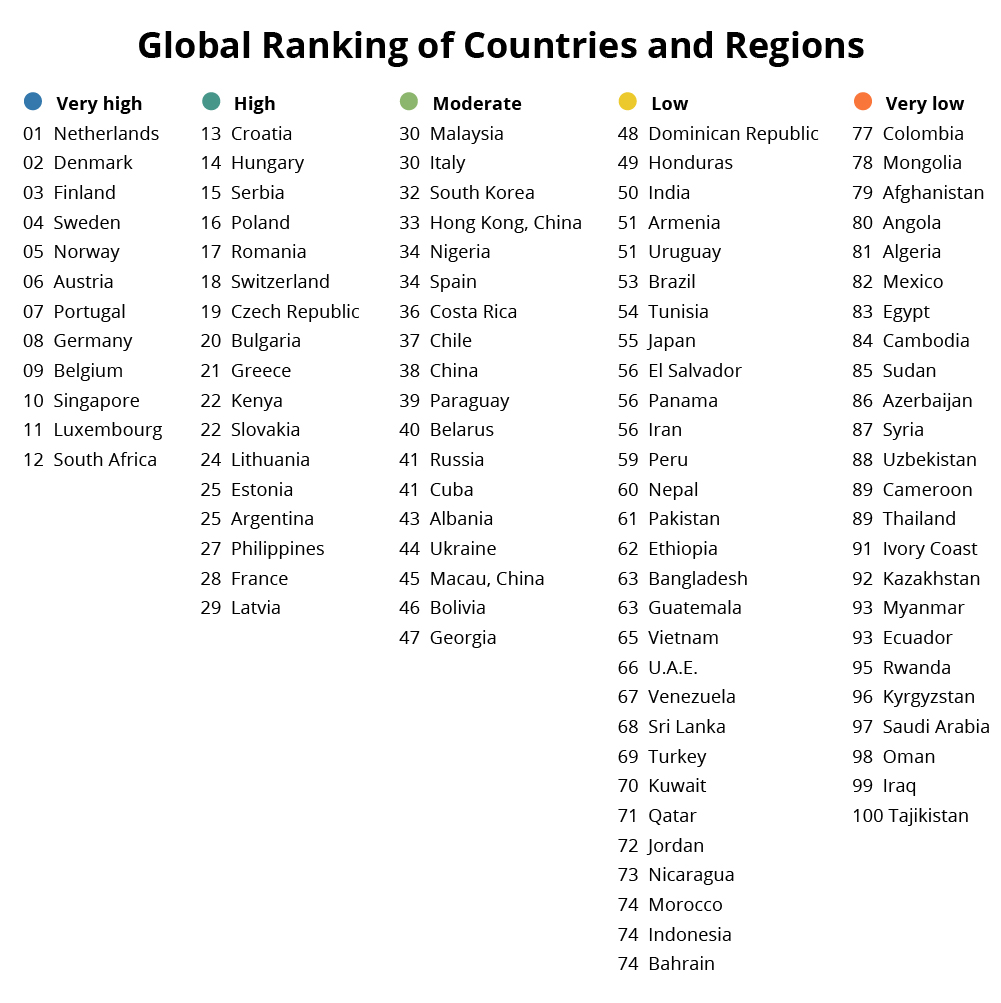Facts Don’t Lie – Why Localization is Key for Global Business Success
|
Font size:
In this digital era, businesses need to understand the significance of translating and localizing their services or products for different markets.
English is the third most popular language in the world
According to Babbel, English is the third most popular language in the world. Used by over 370 million native speakers, it’s safe to say English is a global lingua franca that brings people, businesses and countries together. In fact, it is the most popular language used online (as of 2020, Statista) and the most commonly used in business (American Express). No surprise then that English translation and localization is one of the most sought-after services.
There are several countries that are not proficient in the English language
Despite English being a “worldwide language”, however, not everyone has strong English vocabulary. According to the 2020 edition of the EF English Proficiency Index (EF EPI), there are countless countries that have a non-proficiency in the English language.

60.6% of internet users prefer to browse in their native language
According to CSA Research, even the countries with high proficiency in English prefer to look up something in their native languages. Europe may be on top of the EF EPI ranking, but as reported by Eurobarometer, 44% of internet users in the EU actually feel they might be missing crucial information if a website isn’t displayed in their local language.
Even in Sweden, which is one of the most fluent in English, over 80% of online shoppers prefer to make a purchase in their own language.
Consumers are more likely to buy products in their native language
72.4% of consumers are more likely to buy products in their native language (HBR), while 78% of online shoppers are more likely to make a purchase on online stores that are localized in their native tongue, reports CSA Research. About 72.1% of internet users will stay on your website if it is translated in their native tongue. This, therefore, accentuates the need for website localization even more.
Over 50% of all Google queries are in languages other than English
This interesting statistic from Hubspot once again proves the need to localize your online content into various languages. The use of the internet has grown exceptionally in non-native English speaking countries, while search engines like Google have accommodated multilingual searches.
Chinese is one of the most powerful languages online
Not only is Chinese the most natively spoken language in the world, Bloomberg reported that it also has over 800 million internet users. China is also the world’s largest app market, with almost 50% of app downloads originating from this country (Appannie). Hence, localizing your app for the Chinese market is vital for your business profitability in the long term.













